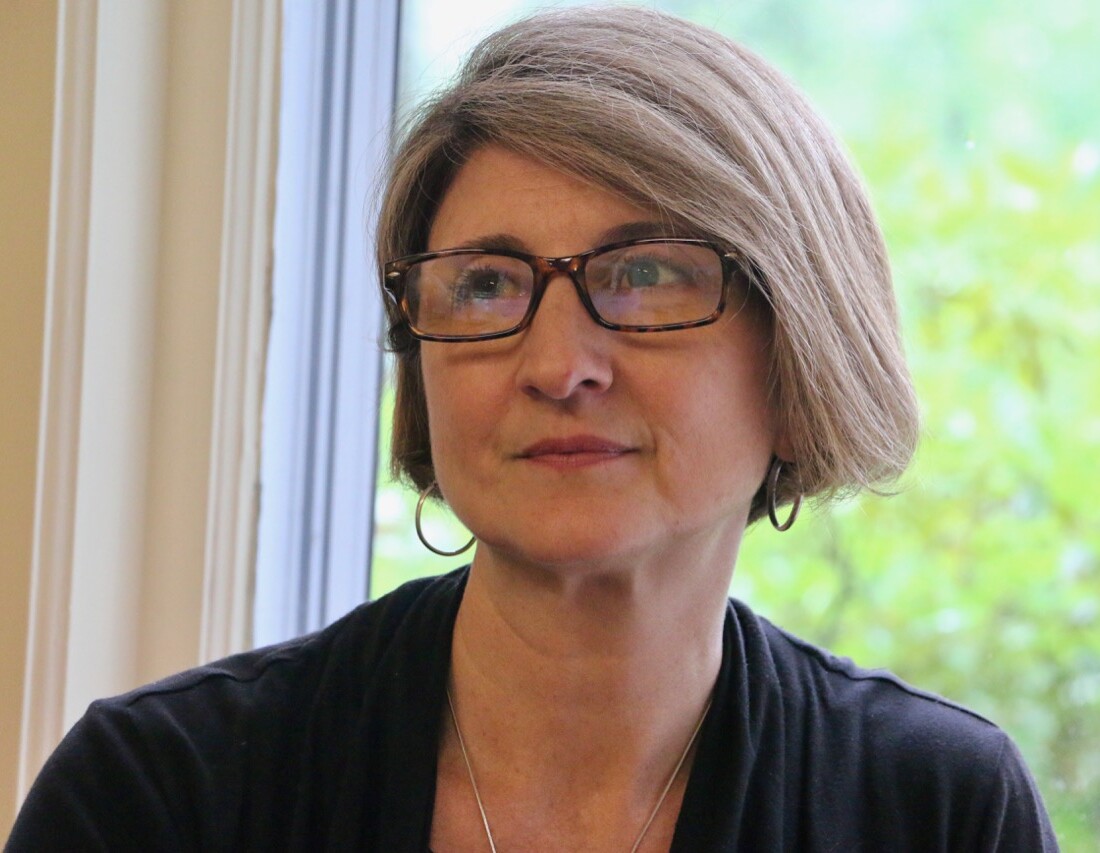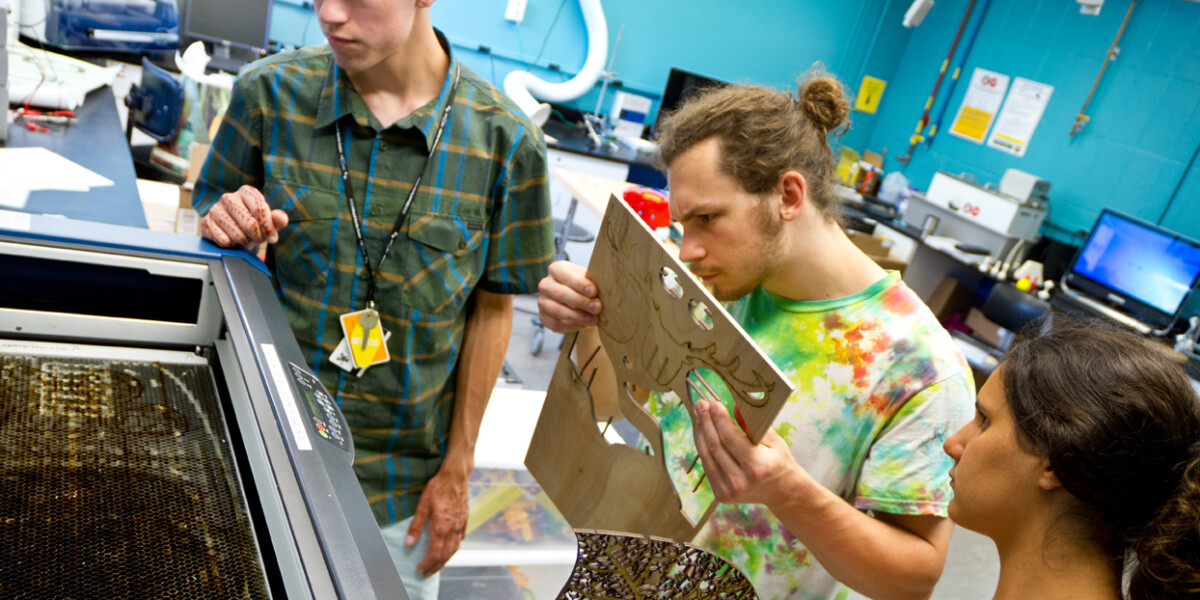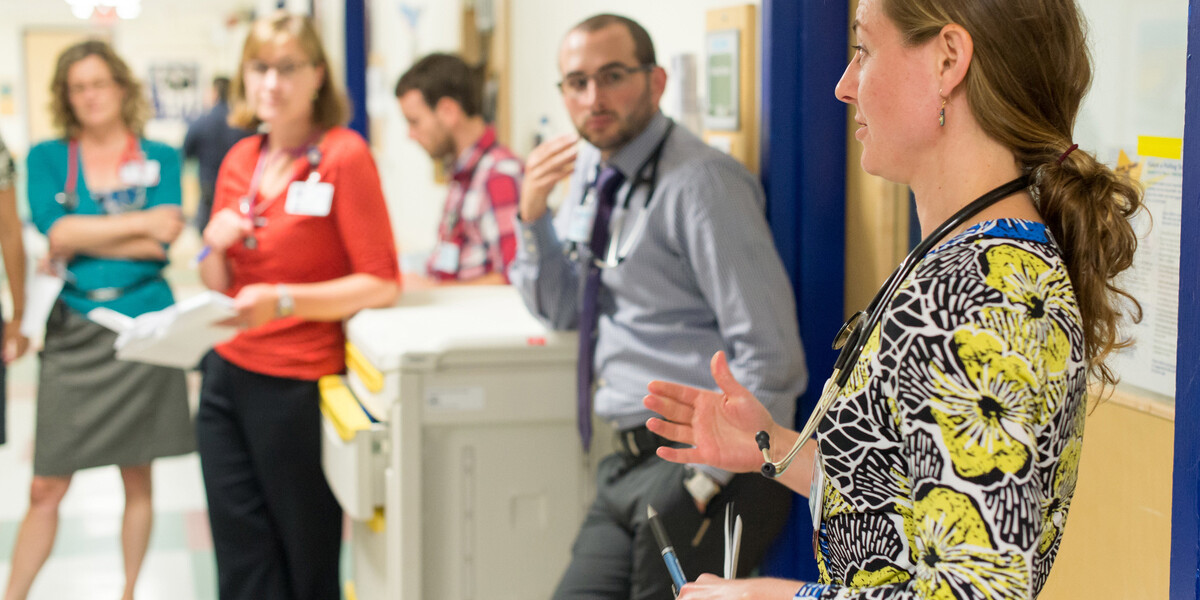By Kate Whitney
Kristen Kilbashian, a pre-college academic advisor for UVM Continuing and Distance Education, has the unique role of assisting high school students and recent high school graduates.
She acknowledges that not nearly enough people are aware of the incredible programs available through UVM CDE for that particular age group.
“If you consider ‘Continuing and Distance Education,’ you may not have necessarily thought of pre-college programs,” Kilbashian said. “The name does speak to the adult learner or the new traditional student, but we have many opportunities that may not get out to the younger audience. It’s just one of those things that I wish more high school students knew about.”
Ample Opportunities Available for High School Students
Kilbashian also wants more students to take advantage of the state’s “fantastic” dual enrollment program, which allows high school juniors and seniors to take two tuition-free college courses. “It’s an amazing opportunity,” Kilbashian said. “And it feels like there are pockets within the state that just aren’t aware of this benefit.”
The bulk of the students she advises are participants in UVM’s Pre-College courses and Summer Academy Programs, designed to help students earn credits toward college, complete high school requirements, take a course that isn’t available at their high school, or showcase their talent and ambition to college recruiters. UVM offers more than 100 courses to high school students, both on campus and online, while Summer Academy is a 4-week intensive hybrid—both on campus and online—course for students interested in a specific area of study.
This year’s expanded Summer Academy offerings include:
- Health and Medicine—Students are exposed to the fascinating world of modern medicine and bioscience through active learning in labs, lectures, demonstrations, and hospital visits. Students will learn in the University of Vermont College of Medicine academic facilities including the Clinical Simulation Laboratory where they will perform virtual medical procedures.
- Journalism with Words and Photographs—Students will explore how words paint pictures and pictures tell stories, looking closely at the interplay, the reciprocity and collaboration of writing and images: how one can spark, conjure, compliment, or enhance the other in making meaning and creating stories that matter.
- Facing Environmental Futures: Foundations in Geographical Thought and Practice—In this course, we will examine the nature of the challenges of global warming and other environmental changes, how they came to be, and how we might respond to them in just, equitable, and courageous ways.
- Biomedical Science and Human Disease—In this introductory course, students will expand on the knowledge learned in high school biology and chemistry to explore the biomedical sciences including Microbiology, Immunology, Molecular Genetics, Clinical Biochemistry, and Hematology.
- Renewable Energy: Harvesting Technology Design—This project-based learning course will introduce students to multiple renewable energy technologies (wind turbines, hydropower plants, solar panels, etc.) and teach them the basic mechanical principles governing these systems. Students will get hands-on experience with these technologies and be able to create and test their own designs.
- Bioprospecting: Drugs from Bugs—This research methods laboratory course is framed around identifying novel antibiotic-producing bacterial strains in an effort to combat the increasing levels of antibiotic resistant infections. Students will develop research questions, investigate them using laboratory methods that they optimize, and share their data with an expanding network of SWI partner institutions throughout the U.S. and Europe.
- Drones for Environmental Mapping—This course will study Unmanned Aircraft Systems (UAS) or drones. UAS or drones, have provided us with new ways to map, monitor, and measure our changing landscape.

- Adventures in Neuroscience—In this course, students will be introduced to the exciting and diverse field of Neuroscience. Interactive lectures and laboratory experiments will explore topics ranging from development of the nervous system to behavior. Students will have hands-on experience performing Neuroscience research and testing hypotheses.
Many students who find the learning environment of high school less challenging have thrived during the University of Vermont’s Summer Academy or pre-college courses. “I’ve met with a handful of pre-college students and their parents and they might say, ‘High school is boring, I’m not being challenged, I’m just going through the motions, and I don’t even want to try anymore’,” Kilbashian said. “So the parents or counselor suggest coursework at UVM… they are trying to turn it around and do themselves a service by finishing up their high school requirements and building up their college resume. Whether or not they choose to matriculate here at UVM, they already have college credit to take with them. That’s a great opportunity.”
Learn more about Pre-College Courses, Summer Academy and Vermont Dual Enrollment Program.
Start dates for programs vary. Start an application today.




